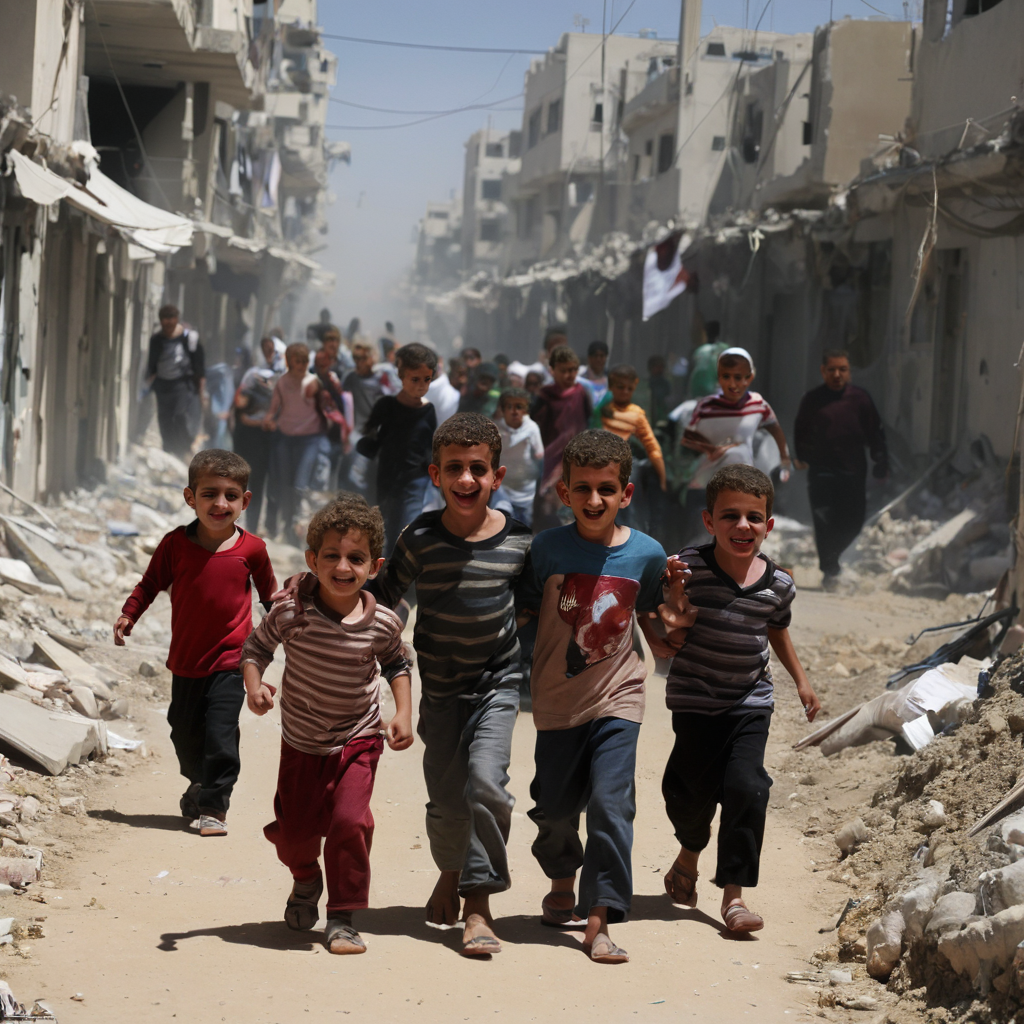Thousands of Malnourished Children in Southern Gaza at Risk Due to Conflict

Almost 3,000 children in southern Gaza are at severe risk of death due to being cut off from treatment for moderate and severe acute malnutrition. This dire situation has arisen amidst ongoing violence and displacement, severely impacting access to healthcare facilities and services for many desperate families.
According to UNICEF’s nutrition partners, around three-quarters of the 3,800 children who were receiving life-saving care in the southern regions, particularly in Rafah, before the conflict escalation are now without treatment. The deteriorating situation has also heightened concerns about more vulnerable children falling into malnutrition.
Deteriorating Humanitarian Access
Despite slight improvements in food aid delivery to the north, humanitarian access in the south has plummeted. Early results from recent malnutrition screenings in the middle and southern governorates of Gaza indicate a rise in moderate and severe malnutrition cases since the second week of May. This increase coincides with the significant curtailment of aid delivery and humanitarian access due to the escalation of violence in Rafah.
Urgent Need for Resumption of Treatment
“Horrific images continue to emerge from Gaza of children dying before their families’ eyes due to the continued lack of food, nutrition supplies, and the destruction of healthcare services,” stated UNICEF Regional Director for the Middle East and North Africa, Adele Khodr. “Unless treatment can be quickly resumed for these 3,000 children, they are at immediate and serious risk of becoming critically ill, acquiring life-threatening complications, and joining the growing list of boys and girls who have been killed by this senseless, man-made deprivation.”
Collapsing Treatment Services
Currently, only two of the three stabilization centers in the Gaza Strip that treat severely malnourished children remain operational. The ongoing military operations have delayed the opening of new centers, exacerbating the crisis.
Impact of Infrastructure Damage
Treating a child for acute malnutrition typically requires six to eight weeks of uninterrupted care, including special therapeutic food, safe water, and other medical support. However, the conflict has drastically reduced water production in Gaza to less than a quarter of its previous levels, contributing to the risk of disease and other health issues due to limited access to safe water, sewage overflow, infrastructure damage, and lack of hygiene items.
UNICEF’s Efforts and Calls for Action
“Our warnings of mounting child deaths from a preventable combination of malnutrition, dehydration, and disease should have mobilized immediate action to save children’s lives, and yet, this devastation continues,” Khodr added. “With hospitals destroyed, treatments stopped and supplies scant, we are poising for more child suffering and deaths.”
Since October 2023, UNICEF has provided tens of thousands of women and children with prevention and treatment services for malnutrition, using Ready-to-Use Therapeutic Food, Ready-to-Use Infant Formula, and high-energy biscuits and micronutrient supplements for pregnant women.
“UNICEF has more nutrition supplies prepositioned to arrive in the Gaza Strip, if access allows,” Khodr continued. “United Nations agencies are seeking assurances that humanitarian operations can safely collect and distribute aid to children and their families without interruption. We need better operating conditions on the ground, with more safety and fewer restrictions. But ultimately, it is a ceasefire that children need most.”
The situation in southern Gaza is critical, with thousands of children at risk due to malnutrition amid ongoing conflict. Immediate action is necessary to restore access to treatment and essential supplies to prevent further child suffering and deaths. UNICEF and other humanitarian agencies continue to call for safe, unrestricted access to provide the needed aid and ultimately for a ceasefire to ensure the safety and well-being of Gaza's children.
- READ MORE ON:
- malnutrition
- UNICEF
- Gaza










